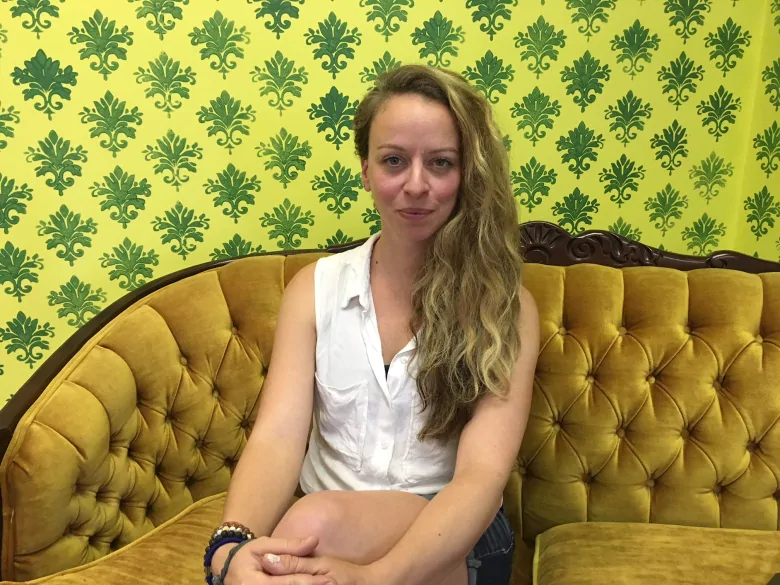In this week’s issue of our environment newsletter, we look at why advocates and participants say there are good reasons to take part in Plastic Free July and the bold bet a Danish energy company made.

Hello, Earthlings! This is our weekly newsletter on all things environmental, where we highlight trends and solutions that are moving us to a more sustainable world. (Sign up here to get it in your inbox every Thursday.)
This week:
- Why a Plastic Free July might not be so crazy right now
- A tale of 2 ‘energy’ companies
- Canadian geology in the world spotlight
Why a Plastic Free July might not be so crazy right now

Plastic Free July sounds like a daunting and even somewhat crazy event to participate in, especially amid a pandemic when many businesses are refusing to allow reusable mugs and bags.
But advocates and participants say there are good reasons to take part this year in an event that’s aimed at helping people develop greener ways of doing things.
“Just starting them with a month is kind of a good way to build those habits,” said Ira Webb, program co-ordinator for Zero Waste Yukon, “and then hopefully people are carrying these things on throughout the year.”
Despite the name of the global event, participants don’t typically go totally plastic-free — they simply try to reduce their use of single-use plastic.
“It’s near impossible to go plastic-free in this day and age,” Webb said. “And I think you should just be proud of making little changes.”
Easy changes suggested by the Plastic Free Foundation, which started the movement in Australia in 2011, include:
-
Eliminating takeaway coffee cups by bringing a reusable cup.
-
Bringing your own reusable shopping bags instead of taking a throwaway plastic bag.
-
Refusing plastic straws when buying a drink, or bringing your own reusable one.
-
Finding plastic-free alternatives when buying fruits and vegetables.
The latter is one thing Webb is focusing on this year, along with growing his own food and baking his own bread.
“Definitely food is a difficult one on the North,” he said, but he noted it’s worthwhile because plastic there has to be shipped long distances to be recycled to even a limited extent.
While the other easy changes may be more difficult because of the pandemic, more than 100 health experts signed a statement last month saying that reusable, refillable containers are safe, based on evidence about the transmission of COVID-19.
They said that such systems are “an essential part of addressing the plastic pollution crisis and moving away from a fossil fuel-based economy.”
‘Gained a lot of skills’
Webb hopes the pandemic won’t have too much of a negative impact on people who are trying to switch to greener habits.
On the other hand, Lisa Griffin of Moncton, N.B., who has been participating in Plastic Free July every year since it started, thinks that the pandemic has already had a positive environmental impact by forcing people to stay home and cook more.
“I feel like a lot of people have gained a lot of skills during this,” she said.

Griffin runs Festival Inspire, an annual arts event she runs each July, as a green festival that promotes Plastic Free July.
Festival-goers normally use reusable mugs and cups, cardboard and bamboo takeout containers and put the festival’s logo on their own clothing via transfers, rather than buying official festival merchandise.
But even that waste has been eliminated this year as a result of the pandemic because the festival is cancelled.
Griffin thinks the biggest benefit of Plastic Free July is making people more aware of single-use plastic and encouraging people, including customers and suppliers, to talk about it, which sparks change.
“It’s really interesting to see how the community around you can transform,” she said. “I think it’s empowering.”
— Emily Chung
Reader feedback
After we posted a link about white-throated sparrows changing their tune from a three-note to a two-note song, many readers wrote in to point out an error — the birds live right across Canada, not just from B.C. to central Ontario as incorrectly reported. It’s the new song that has only spread as far east as central Ontario. We’ve made a correction in the web version of that newsletter issue.
We also got a lot of mail about the new solar technologies, including some from early adopters such as Stephen Mildenberger of Mushaboom, N.S.. He’s installing a dual-axis, bifacial solar system in his backyard. “One of my pet projects is

